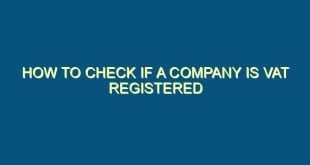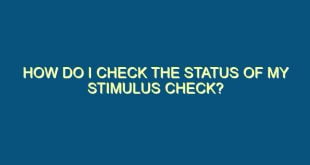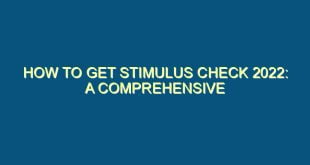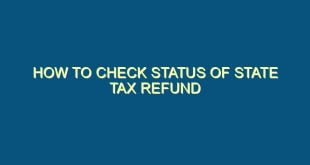Introduction
Understanding your tax code is essential to ensure you are paying the correct amount of tax. A tax code consists of numbers and letters that determine how much income tax should be deducted from your earnings. In this guide, we will explain in detail how to check your tax code and what each component means.
1. What is a Tax Code?
A tax code is a combination of numbers and letters used by HM Revenue and Customs (HMRC) to calculate the amount of income tax you need to pay. It is specific to each individual and reflects various factors such as your income, allowances, and other circumstances.
2. Why is it Important to Check Your Tax Code?
Checking your tax code is crucial as an incorrect or outdated code can lead to overpaying or underpaying your taxes. This may result in financial penalties or missing out on potential tax reliefs and allowances. Regularly reviewing your tax code ensures you are paying the correct amount of tax.
3. How to Find Your Tax Code
Finding your tax code is relatively simple. You can locate it on your payslip, annual P60 form, or the tax coding notice sent by HMRC. If you are unsure about your tax code, contact HMRC or consult a tax professional for assistance.
4. Understanding the Components of a Tax Code
A tax code typically consists of several components, each providing important information about your tax situation. Let’s break down the key elements:
4.1. Personal Allowance
The personal allowance is the amount of income you can earn tax-free within a tax year. It is represented by numbers in your tax code. For instance, if your personal allowance is £12,570, your tax code might be 1257L. The ‘L’ indicates that you are eligible for the standard tax-free allowance.
4.2. Additional Allowances
In some cases, you may be entitled to additional allowances due to specific circumstances such as marriage, blind persons, or other tax reliefs. These allowances are represented by different letters in your tax code.
4.3. Adjustments for Deductions
Your tax code may also include adjustments or deductions based on factors like taxable benefits, state pension, or outstanding tax owed from previous years. These adjustments are represented by numbers or letters.
4.4. Other Codes
There are various other codes that may appear in your tax code, indicating specific circumstances or instructions from HMRC. These codes can include ‘M’ for marriage allowance, ‘N’ for transfer of personal allowance, or ‘T’ for other calculations.
5. Checking for Errors in Your Tax Code
It is essential to review your tax code regularly to ensure there are no errors or discrepancies. Here are the steps to check for errors:
- Contact HMRC: if you suspect an error, contact HMRC helpline or use their online services to clarify any doubts.
- Review Correspondence: carefully examine any letters or notices received from HMRC regarding your tax code.
- Compare with Previous Codes: compare your current tax code with previous codes to identify any significant changes.
- Consult a Tax Professional: if you are unsure about your tax code or need assistance, seek advice from a tax professional.
6. Updating Your Tax Code
If you discover an error or believe your tax code needs updating, take the following steps:
- Contact HMRC: inform HMRC about the issue and provide any necessary documentation or information.
- Submit Relevant Forms: if required, complete and submit any forms or declarations requested by HMRC.
- Keep Records: maintain copies of all communications and forms submitted to HMRC for future reference.
- Follow Up: if the issue is not resolved or you do not receive a response, follow up with HMRC to ensure it is addressed.
7. Frequently Asked Questions (FAQ)
7.1. How often does my tax code change?
Your tax code can change annually or whenever there is a significant change in your taxable income or personal circumstances.
7.2. Can I check my tax code online?
Yes, HMRC provides an online service called “Check your Income Tax” where you can view and update your tax code.
7.3. What should I do if I think my tax code is wrong?
If you believe your tax code is incorrect, contact HMRC immediately to rectify the issue. They will guide you through the necessary steps to resolve any errors.
7.4. Can I request a specific tax code?
No, you cannot request a specific tax code. HMRC determines your tax code based on various factors and regulations.
7.5. What happens if I have been paying the wrong amount of tax?
If you have been paying the wrong amount of tax, HMRC will adjust your tax code and either refund any overpaid tax or request payment for any underpaid tax.
7.6. What if I have multiple sources of income?
If you have multiple sources of income, each with a different tax code, HMRC will calculate your overall tax liability based on the combination of all your tax codes.
7.7. Can I appeal my tax code?
If you disagree with your tax code or believe it to be unfair or incorrect, you can appeal against it. Contact HMRC for guidance on the appeals process.
7.8. Can someone else check my tax code for me?
Yes, you can authorize a tax professional or accountant to check your tax code on your behalf. They can provide guidance and assistance based on their expertise.
7.9. Are there penalties for paying the wrong amount of tax?
If you have unintentionally paid the wrong amount of tax due to an error or incorrect tax code, HMRC will work with you to rectify the situation. In some cases, penalties may apply, but these are generally reserved for cases of deliberate tax evasion or fraud.
7.10. Is it possible to have more than one tax code?
Yes, it is possible to have more than one tax code if you have multiple sources of income or if you receive certain taxable benefits. Each tax code will be specific to the income source it applies to.
 muhitelyemen.net Everything you need to know about how to do something
muhitelyemen.net Everything you need to know about how to do something





